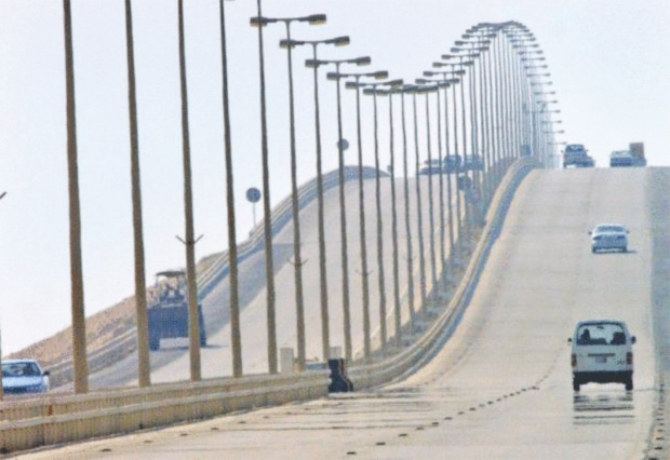JEDDAH: Saudi Arabia’s land borders with the UAE, Kuwait and Bahrain will reopen after a four-month closure as the Kingdom eases the pandemic’s restrictions and economic activity returns to normal.
Commercial trucks carrying goods for the Kingdom will also be allowed to enter through land ports from Gulf Cooperation Council (GCC) states following a circular issued by Saudi Customs.
On March 7, the Kingdom announced that land border crossings with the UAE, Kuwait and Bahrain would be limited to commercial trucks as part of the government’s efforts to contain the spread of the coronavirus.
Meanwhile Saudi Customs officials are taking the lead in identifying air travelers harboring COVID-19 by employing specially trained sniffer dogs.
On March 7, the Kingdom announced that land border crossings with the UAE, Kuwait and Bahrain would be limited to commercial trucks as part of the government’s efforts to contain the virus spread.
The canine virus detectors are being drafted in at airports throughout the Kingdom to help pick up the scent of infected passengers. Following the resumption of international flights, customs staff in Saudi Arabia are to use the animals as part of their efforts to stop the spread of the virus.
Saudi health authorities recorded 1,342 new confirmed COVID-19 cases on Tuesday, taking the total number in the Kingdom to 281,435. The death toll rose by 35 to 2,984
Of the latest cases, 97 were in Riyadh, 56 in Makkah, 53 in Madinah and Hafr Al-Batin, and 51 in Dammam, with 40 percent of them women.
There were 34,763 active cases, with most patients in a stable condition, and 1,983 critical.
The number of people who have recovered from COVID-19 increased to 243,688, with 1,635 of those being in the latest 24-hour period.




























